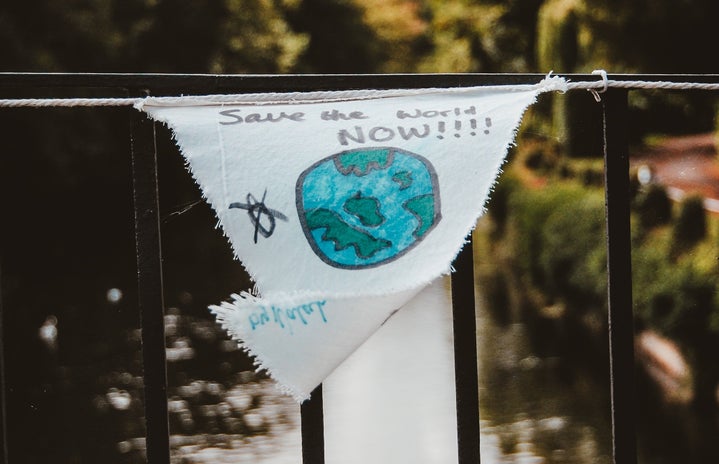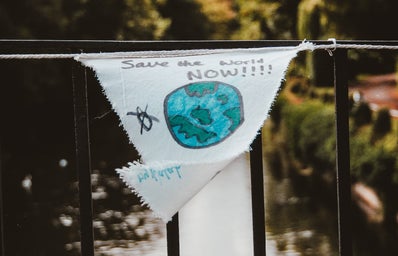The political doctrine of liberalism refers to a theory that believes that the state should govern as little as possible (Bobbio, 1991). It is a doctrine characterized by individualism, formalism, privatism and a complacency towards capitalism (Brown, 2015). Neoliberalism is the resurgence of the liberalist political doctrine and its ideas about a laissez-faire economic liberalism and the free capitalist market (Bloom, 2017) between the 70s and 80s. This term refers to different liberal economic policies; such as deregulation, austerity, free trade, privatization and reduction of government expenditures so that the private sector can play an active role in the economy and in society (Goldstein, 2011). In other words, neoliberalism is a doctrine, rationality or narrative whose social and empirical reality is through language. The neoliberal doctrine has become inescapable and it’s been the primary cause of recent political actions.
According to Naomi Klein, the shock doctrine refers to a series of events, crisis, and states of emergency that have caused “shocks”; these “shocks” have been a necessary component of spreading the neoliberal doctrine. In fact, without these “shocks” the neoliberal doctrine would not have spread the way it has. Neoliberals have sold us a “fairy tale” regarding the radical policies that have spread throughout the world (Klein, 2007). They say that they are necessary measures, but the truth is that they have needed “shocks”, crises and states of emergency in order to have people be vulnerable enough so that they can implement these measures without any backlash. Klein adds that Milton Friedman, and thus neoliberals, understood the usefulness of these “shocks” because they were the only way “real change” could be produced. Klein’s shock doctrine is intended to inform people about an alternative, hidden side of history about how pure capitalism and the neoliberal doctrine have become the dominant force it has today.
One of the greatest exponents of the neoliberal doctrine was Milton Friedman. Friedman, in addition to being a professor of economics at the University of Chicago, was a member of “The Mont Pelerin Society.” In this society, they believed that if the government stopped providing services, such as social security and others established by Roosevelt’s New Deal, and ceased to regulate the market, the economy would regulate itself. They thought the free market went hand in hand with a democracy. Due to the popularity of the New Deal, the ideas of Friedman and the other members of the Mont Pelerin society were not very popular during the 1950s. However, this changed completely after Friedman and the other members of the Mont Pelerin Society were able to expand their ideas and take advantage of a group of people after a state of shock.
Although the most common example of the spread of neoliberalism is President Reagan in the United States and Prime Minister Margaret Thatcher in the United Kingdom, Naomi Klein states that this should not be the starting point, but that it should be Chile. During the 50s and 60s, Chile was a country where policies were progressive and social assistance programs existed. This worried North American investors who had business in the country. For this reason, the U.S. Department of State began to provide Chilean students, and other Latin American students, the opportunity to study the economy of the free market under Friedman at the University of Chicago. They became known as the “Chicago Boys” and they returned to Chile to become professors in the country’s universities. However, despite the interventions of United States through the country’s telephone company, Salvador Allende won the elections in Chile in 1970 with the promise of creating more social programs. At the time, President Nixon ordered U.S Agencies to make the Chilean economy “scream” and he provided Allende’s political opponents with the money necessary for a coup d’etat. This coup, commanded by Augusto Pinochet, was treated as if it were a war and it began a military government in the country. The “Chicago Boys” gave Pinochet their economic plan, entitled “The Brick” (‘El Ladrillo’). This was implemented after the population of Chile was in a state of “shock” after the coup. In other words, Pinochet and the economists who studied under Friedman took advantage of the vulnerable situation of Chilean society to implement their neoliberal policies. None of this worked however, as inflation in Chile became the highest in the world and the gap between the rich and the poor became narrower. In fact, today Chile is still reeling from the impact neoliberalism has had in the country.
In summary, neoliberalism and the doctrine of shock are directly related because neoliberalism has needed “shocks”and crisis’ to become the dominant force it is today. Without the existence of moments of “shock”, such as the acts of the Chilean military government, the creation of charter schools in New Orleans by the Bush administration after Hurricane Katrina, the war in the Falkland Islands by the United Kingdom led by Thatcher, the invasion and occupation in Iraq by the Bush administration, among many others, the spread of the neoliberal doctrine through taking advantage of people in their vulnerable moments would not have been possible. Now, capitalism is a very productive economic model, but it is a very exploitative system and that’s the problem with it; that’s why pure capitalism cannot exist and does not work. The neoliberal doctrine, and those of pure capitalism, only benefit the people who have power; those who are rich and keep getting richer. That’s precisely why it thrives from “shocks” or moments of vulnerability that affect people. The way to combat this is to educate ourselves on the harmful neoliberal policies that are spreading across the globe and to do something about it. Staying complacent while the world falls apart around us is something that we simply cannot afford to do.
References:
Bloom, Peter (2017). The Ethics of Neoliberalism: The Business of Making Capitalism Moral. Routledge. pp. 3, 16.
Bobbio, N. (1991). El futuro de la democracia, México. Fondo de Cultura Económica. Recovered from: https://socialesenpdf.files.wordpress.com/2013/09/bobbio-norberto-el-fut…
Brown, W. (2015). Undoing the demos neoliberalism’s stealth revolution. New York. Zone Books.
Goldstein, Natalie (2011). Globalization and Free Trade. Infobase Publishing. p. 30.
Klein, N. (2007). The Shock Doctrine: The Rise of Disaster Capitalism. Canada. Knopf Canada.
Winterbottom M. & Whitecross M. (2010) The Shock Doctrine. Documentary. Recovered from: https://www.youtube.com/watch?v=B3B5qt6gsxY


